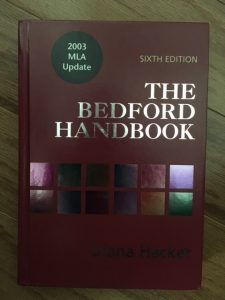I read a lot. And the more I read, the more often I’m irritated or distracted by writers who misuse pronouns. Pronouns can be subject (I/you/he/she/it), object (me/you/him/her/it), or show possession (my/your/his/her/its).
I came to see you. She gave it to him. The book is yours.
Of course, not all pronouns are singular. The plural pronouns serve all the same functions: subject (we/you/they), object (us/you/them), or possessive (our/your/their).
The most frequent offense to my readerly sensibility is confusing subjective and objective pronouns. For example, “Joe and me walked into town.” Or, “The Queen nodded to James and I.”
Writers seem most prone to these errors when a pronoun is in a series with proper nouns. In such cases, taking out the nouns makes the correct pronoun obvious. Few would intentionally write “Me walked into town” or “The Queen nodded to I.”
Another quick check is to replace the series with a plural pronoun: “Us walked into town” or “The queen nodded to we” glares like a spotlight.
Ultimately, correctness depends on intention. “I get a little jealous that Bill is more courteous to Susan than I.” What is correct depends on how that sentence would be completed to give the intended meaning. “I get a little jealous that Bill is more courteous to Susan than I (am)” indicates regretting poor manners. If it should be expanded as “I get a little jealous that Bill is more courteous to Susan than (he is to) I” the “I” should clearly be “me.” In either case, the meaning should be clarified.
The above having been said, there are times when a writer can legitimately use grammatically incorrect pronouns. Using the objective as subjective can indicate a lack of education or intellect; alternatively, it can signal a child speaker. For example, “Joe and me went fishing.”
Using the subjective as objective can indicate someone striving for elegance, to give the impression of refinement. “The countess was excessively kind to my sister and I.”
Technically, the pronoun after is, are, was, or were should be I, he, she, we, or they. “May I speak to Ms. Lawry?” “This is she.” equals a grammatically correct exchange. If you want to convey formality—or perhaps superciliousness, stuffiness, or age—use this formal construction. However, if you intend a conversational exchange or a casual tone, rephrase.
TAKEAWAY FOR WRITERS: Know the rules of grammar so you can use them or abuse them to suit your purposes!

